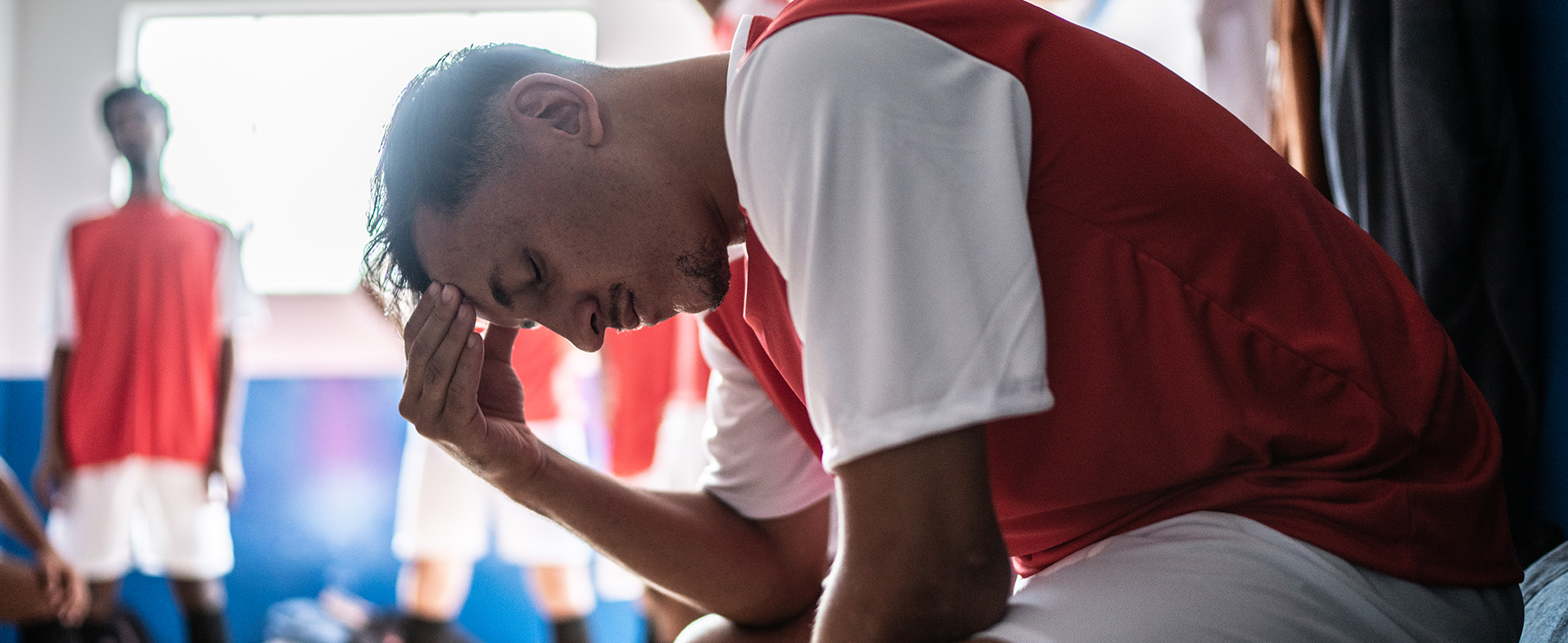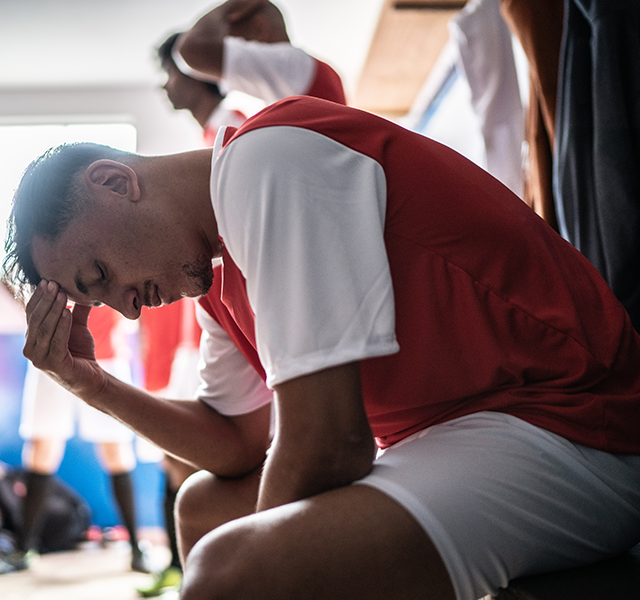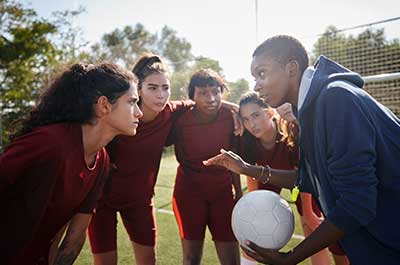Everyone loves a good comeback story — especially in the world of sports. But for every moment of glory that fans see, there are countless hours of hard physical and mental work that take place behind the scenes. That can be easy to forget for amateur or student athletes who are facing their own struggles after getting sidelined with an injury.
“It’s not uncommon for injuries to fuel feelings of isolation, frustration, anxiety and even depression,” says Seth Swary, Ph.D., a sport psychology clinician at Henry Ford Health. “Missing out on competition can affect your emotional well-being, social well-being and your self-concept or identity.”
So when you’re out of commission and battling doubts, fears or issues of self-confidence, what can you do to ensure you return at full strength? Dr. Swary outlines a few strategies below:
Psychological Skills To Combat Sports Injuries
1. Set clear and realistic goals. Athletes are often natural goal setters. They’re used to tracking data and monitoring progress to achieve results. When hampered with an injury, though, you may need to rein in your tendency to push yourself. To keep progress achievable, set SMART goals – an acronym for Specific, Measurable, Attainable, Relevant and Time-Bound. For example:
- Specific: I will run a 5K at the same pace I did pre-injury.
- Measurable: I will track my running pace using my favorite running app each time I walk/run.
- Attainable: I know I ran a 5K before, and my injury will heal and allow me to do it again.
- Relevant: I enjoy running and want to continue running for my health.
- Time-bound: I will let myself heal for the time my doctor recommended and will increase my mile pace week by week in time for the race I signed up for next month.
2. Visualize a healthy you. Don’t underestimate the power of visualization. Studies have shown that when we visualize an action and actually perform that action, we stimulate the same regions in our brains. If you’re recovering from a broken ankle, visualize yourself sprinting across the field in full stride with two healthy, fully functioning feet beneath you. Want to make every single one of your three pointers once you’re playing again? Picture each one of them sinking through the net. Visualization can help you boost your performance.
3. Be optimistic. When we face big life challenges, our minds can get clouded with negative thoughts. Keep a mantra written somewhere like on your mirror or in your wallet. Read it or repeat it to yourself when doubts creep in. Positive affirmations can be effective too. (Think: Muhammad Ali’s refrain “I am the greatest.”)
4. Focus on the present. Whenever we’re injured or ill, we want to be better now. Athletes, in particular, often want to get back to playing as soon as possible. The truth is, injuries require time and patience to heal and by focusing on the here and now – instead of the future – you’re actually doing yourself a service. No matter how you heal, it won’t happen tomorrow or the day after. It will happen in the moment, one moment at a time.

Sport Psychology Clinic
5. Honor your feelings. If your sport is a big part of your life (either as a hobby or a career) it’s natural to feel disappointed by your inability to participate. You may be missing teammates, friends or the feelings of accomplishment that scoring a goal or winning a game can bring. If you lose an activity, view it for what it is – a loss. As such, you may experience the five stages of grief (denial, anger, bargaining, depression, and acceptance). Recognizing these feelings is the first step to managing them, owning them and moving through them.
6. Accept help and support. No world class athlete gets to the elite level of their game without help – especially after an injury. And no matter how much you’ve trained or dieted on your own, having a guide, coach or therapist can be a helpful motivator. Plenty of professionals keep sport psychologists in their network whether they’re winning or losing.
7. Take control. One of the most frustrating aspects of an injury is that it can make you feel powerless. And while you may not be able to heal a broken bone or torn ligament yourself, you can make conscious choices to rest when appropriate and push yourself when it feels right. By owning your situation, you ensure that your injury doesn’t have power over you.
Almost every athlete will sustain some type of injury at some point in their career. Having a plan in place to deal with setbacks – physical, mental, financial, etc. – can make the recovery process less daunting. That said, it’s not possible to anticipate the obstacles we face or how we’ll respond to them. But whether you’re on the field or on the couch, you can always do your best.
Reviewed by Seth Swary, Ph.D., a sport psychology clinician at Henry Ford Health.



